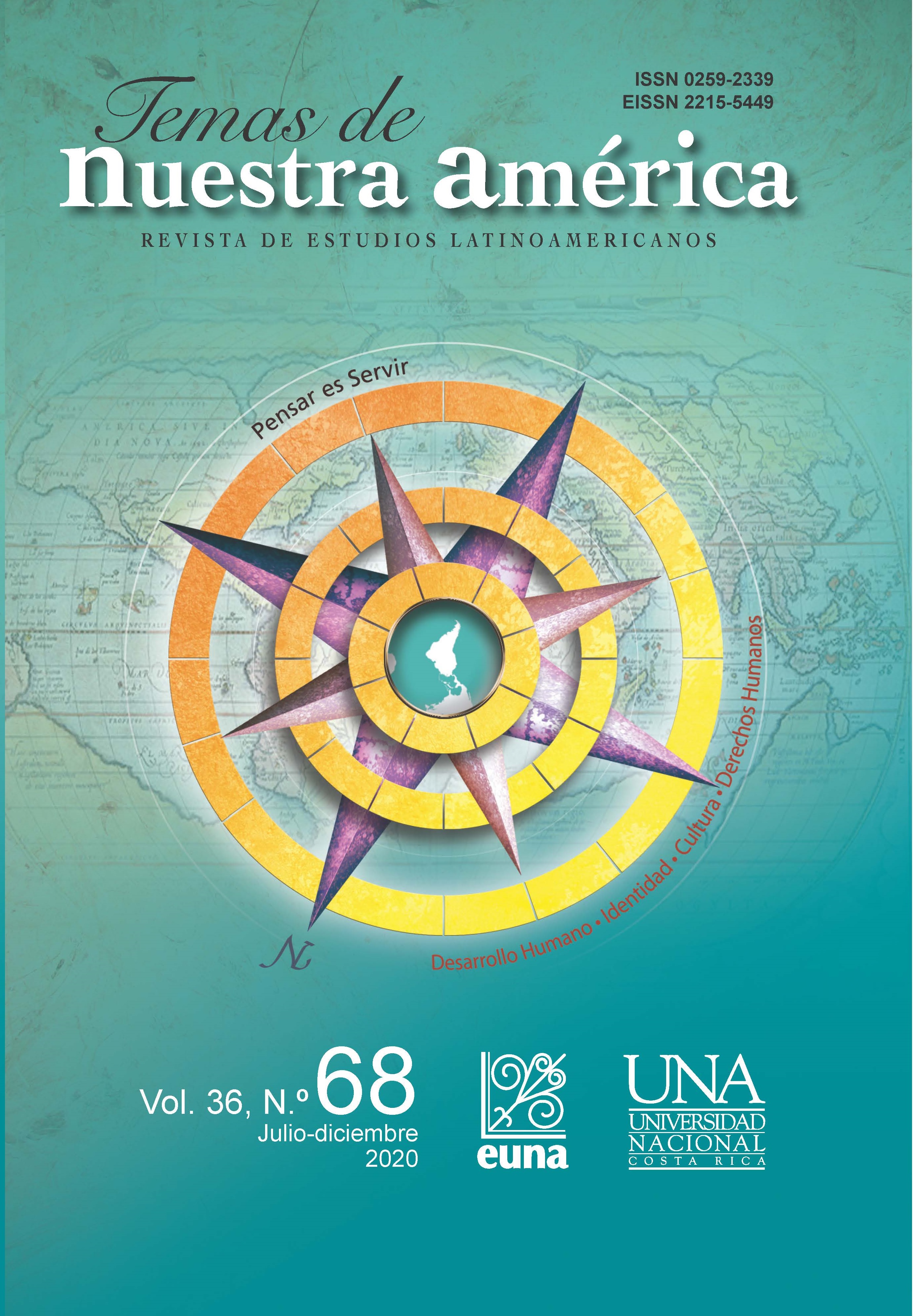Brazilian Military Justice: Persecution againt Black, Poor and Slaughters Civils, in Operation of Law and Orden Guarantee in Río de Janeiro
DOI:
https://doi.org/10.15359/tdna.36-68.3Keywords:
Military justice, colonialism, subalternity, GLO, Guarantee of law and order, resistance and contemptAbstract
The military has had a strong influence on Brazilian political life since the proclamation of the Republic in 1889. Military Justice, which should judge exclusively military personnel in peacetime, throughout Brazil’s history has been used to condemn civilians, including for reasons of political persecution. In recent years there has been the condemnation of civilians, residents of favela communities in Rio de Janeiro, by the Military Justice as result of alleged crimes of disobedience and contempt in the course of law and order guarantee operations. The purpose of this article is to analyze the prosecution by the military justice of civilians (mostly poor, black and slum dwellers in Rio de Janeiro), in the course of law and order compliance operations, for framing the crimes of disobedience and contempt practiced against military people. The investigation took place through qualitative analysis of trials at the Superior Military Court, between the years 2011 to 2019, which resulted in condemnations for disobedience and contempt, in the course of operations for Guarantee of Law and Order used against residents of slum communities in Riode Janeiro, who rose up against the armed forces’ police action.
References
Barreto Souza, A. e Moreira Domingues da Silva, A. (2016). A organização da Justiça Militar no Brasil: Império e República. Estudos Históricos, 29 (58).
BRASIL. (1965). Ato Institucional n. 02, de 27 de out. 1965. Disponível em http://www.planalto.gov.br/ccivil_03/AIT/ait-02-65.htm Acesso em 29 de mai. 2020.
BRASIL. (1969-a). Decreto-lei 1.001, de 21 de out. de 1969. Disponível em http://www.planalto. ov.br/ccivil_03/Decreto-Lei/Del1001.htm Acesso em 28 de mai de 2020.
BRASIL. (1969-b). Decreto-lei 1.002, de 21 de out de 1969. Disponível em http://www.planalto.gov.br/ccivil_03/decreto-lei/Del1002.htm Acesso em 28 de mai. 2020.
BRASIL. (1969-c). Ato Institucional n. 16, de 14 de out. 1969. Disponível em http://www.planalto.gov.br/ccivil_03/AIT/ait-16-69.htm Acesso em 30 de mai. de 2020.
BRASIL. (1988). Constituição da República Federativa do Brasil. Disponível em http://www.planalto.gov.br/ccivil_03/constituicao/constituicao.htm Acesso em 28 de mai. 2020.
BRASIL. (1997). Lei Complementar 97, de 09 de junho de 1999. Disponível em http://www.planalto.gov.br/ccivil_03/leis/lcp/lcp97.htm Acesso em 30 de mai. 2020.
BRASIL. (2013). STF, 1a Turma, Habeas Corpus número 113.128-RJ, relator Ministro Roberto Barroso, julgado em 10/12/2013. Disponível em http://portal.stf.jus.br/processos/downloadPeca.asp?id=202073206&ext=.pdf
BRASIL. (2020). STM. 212 anos da Justiça Militar da União. Disponível em https://www.stm.jus.br/informacao/agencia-de-noticias/item/10479-superior-tribunal-completa-212-anos-e-produz-video-sobre-sua-historia-e-funcionamento Acesso em 27 de mai. de 2020.
Carvalho Maklouf, L. (2018). O julgamento que tirou Bolsonaro do anonimato. O Estado de
S. Paulo.
Fanon, F. (2008). Pele negra, máscara branca. Editora Universidade Federal da Bahia.
Folena De Oliveira, J. R. (2017). Militares e política. Jornal GGN. Acesso em 30 de mai. de
https://jornalggn.com.br/analise/militares-e-politica-por-jorge-folena/
Folena De Oliveira, J. R. (2018). Memória, golpe e Direitos Humanos no Brasil, Revista Digital
do Instituto dos Advogados Brasileiros, (39). Acesso em 29 de mai. 2020.
Folena de Oliveira, J. R. (2018). Memória, golpe e Direitos Humanos no Brasil. Revista Digital nº 39. https://digital.iabnacional.org.br/revista-digital-no-39/ emoria-golpe-e-direitos-humanos-no-brasil/
Gramsci, A. (2014). Cadernos do cárcere. v. 6. Rio de Janeiro: Editora Civilizações Brasileira.
Estudos Históricos (Rio de Janeiro) versão impressa ISSN 0103-2186versão On-line ISSN
-1494.
Estud. hist. (Rio J.) vol.29 no.58 Rio de Janeiro mai./ago. 2016 https://doi.org/10.1590/S2178-14942016000200003 ARTIGOSA ORGANIZAÇÃO DA JUSTIÇA MILITAR NO BRASIL: IMPÉRIO E REPÚBLICA. The organization of Military Justice in Brazil: Empire and Republic https://jorgefolena.blogspot.com/2020/05/dez-hipoteses-para-tempos-alarmantes.html
Mayer, A. (1981). A força de tradição. A persistência do antigo regime (1848-1914). Companhia
das Letras.
Souza, A. B. e Silva, Â. M. D. da. (Mai-Ago 2016).A organização da justiça militar no Brasil: império e república. Revista Estudos históricos, 29 (58). Acesso em 27 de mai. 2020.
Teixeira Da Silva, F. C. (2015). O Tribunal e a Lei de Segurança Nacional no Brasil, 1935/1937. Acesso em 30 de mai. 2020. http://ufrj.academia.edu/FranciscoCarlosTeixeiraSilva
Teixeira Da Silva, F. C. (2020). Dez hipóteses para tempos alarmantes para compreender emudar o Brasil. Acesso em 30 de mai. de 2020.
Tércio, J. (2015). A espada e a balança: crime e política no banco dos réus. Zahar Editor.
Published
How to Cite
Issue
Section
License
Esta obra de Revista Temas de Nuestra América está bajo una Licencia Creative Commons Atribución-NoComercial-SinDerivar 4.0 Internacional.
Cualquier permiso que trascienda dicha licencia, debe solicitarse por escrito a la persona directora de la Revista










